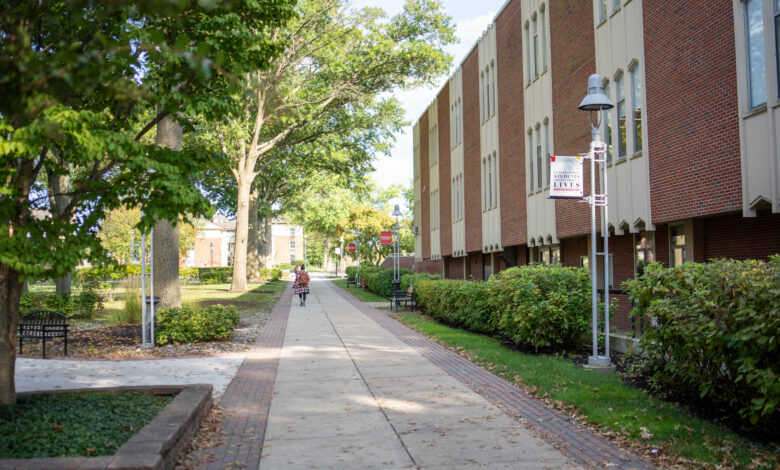
New scholarships created to raise student retention
By Jay Roberson
Rider is attempting to increase student retention by finding new strategies to award scholarships to prospective students and current.
The hope is that students will receive the financial support they need to continue their education and can avoid other scenarios like dropping out or transferring due to monetary struggles.
President Gregory Dell’Omo spoke about ways the university is attempting to financially support Rider students, including fundraisers, in a summer webinar.
“We will continue to aggressively promote the campaign, meet with donors and raise funds to ensure that Rider can continue enhancing the lives of students both now and well into the future,” said Dell’Omo.
Drew Aromando, vice president for enrollment management, went into detail about the different ways that scholarships support students at Rider.
“It [scholarships] breaks into 242 different combinations that you can fall into as a recruiting student,” said Aromando. “There’s a lot of play in how we approach the student body and we try to do it in a way where we know what kind of applicant pool is coming out of a pandemic, a lot of people had tough times with inflation. Money’s tight for a lot of people.”
Associate Vice President of Marketing and Communications Kristine Brown spoke with The Rider News about a new initiative to bring in more education majors.
“One of the things we’re working towards this year is to increase the number of education majors because of the shortage of teachers in the state. We are going to have a new scholarship for incoming education students to help combat the teacher shortage,” said Brown.
This new scholarship will award incoming education students amounting $2,000-5,000 per year, and is renewable annually as long as they’re enrolled in 12 credits and maintain a 3.0 GPA.
Aromando spoke about additional partnerships that the university has formed in order to create more opportunities for scholarships. These collaborations can benefit students in specific majors as they are given extra financial support and earlier opportunities to network with partners.
“We’ve also partnered with Capital Health this year to sponsor a student from Trenton High School who wouldn’t have been able to be here,” Aromando said. “Not only are we doing that to help the student, but the student wants to be in health care and science. It’s a perfect introduction into potential career opportunities and a network.”
Dell’Omo spoke about the importance of government funding to support Rider students and different programming.
“Another area we are increasingly focusing on is government support. Unlike public institutions, independent universities like Rider do not receive significant state funding,” said Dell’Omo. “While Rider has received limited funding this year for specific programs related to important areas such as [diversity, equity and inclusion] programs, mental health counseling and student scholarships, we’re working hard at receiving additional operating support specifically related to assisting us in our path forward plan”
The university has worked to create a proposal to receive more funding from the government, according to Aromando.
Aromando said, “Micah Rasmussen, [director of the Rebovich Institute for New Jersey politics], President Dell’Omo and I partnered on a proposal to the state to get support, which wasn’t that much. It was $200,000, but it helps to try and close the gap on that high talent population.”
The university hopes it can support students with new scholarship offers and find more opportunities to award financial support in the future.
“We want to help students across a level of academic talent and financial need. And while it’s not a perfect science, the goal is to really help every family as equitably as possible regardless of race, gender, and religious background,” Aromando said.


